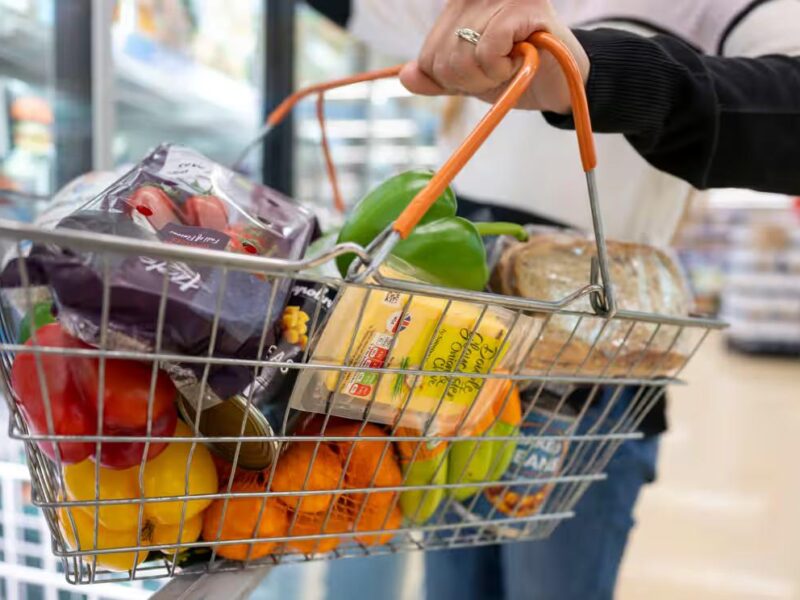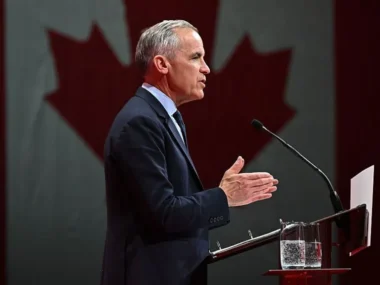Food prices were 29% higher last month than in September 2021, putting strain on many households.
Finally, UK inflation has fallen far and fast enough to begin to catch up with countries such as France, where the annual rate of price rises has decreased at a quicker rate this year.
At 3.9% last month, the headline figure remained about above the Bank of England’s 2% target, but was much lower than the 11.1% peak in October last year and fell short of the 5.3% target set by Rishi Sunak for the end of 2023.
Even better, many costs fell month after month. White and wholemeal sliced loaves, as well as packs of cakes, all declined in price between October and November, following a year-ago increase.
However, as many unions, think tanks, and the Labour Party have pointed out, the cost of living crisis of the last two years is still being felt acutely by many. Last month, food prices were 29% higher than in September 2021, and energy prices were 66% higher.
This helps to explain why, according to a recent Resolution Foundation poll, twice as many families thought their finances were worse in the autumn than claimed they had improved.
Much of the decrease in food prices is due to the decreased trend in oil prices, which has a significant impact on transportation companies’ budgets. Recent drops in oil prices are primarily due to falling demand in much of Asia and Europe, where high borrowing rates have hampered consumer and company spending. However, there are concerns that the current suspension of shipping traffic via the Red Sea as a result of Houthi rebel attacks protesting Israel’s war on Hamas in Gaza may cause energy and supply chain costs to rise again.
High interest rates in the United Kingdom have been less effective in persuading service industries to slow price increases, prompting the National Institute of Economic and Social Research to declare that “there is still some way to go before inflation reaches the Bank of England’s target.”
Services organizations, ranging from marketing agencies to large banks, have defied the trend, blaming continuous pricing hikes on increasing employee compensation. Excluding fuel and food from the inflation rate yields core inflation, which fell from 5.7% to 5.1%.
Will service providers stop passing on increasing charges by 2024? This is a huge issue for the Bank of England, and it appears to be the primary reason it will maintain interest rates high in the coming months.
Investors, on the other hand, have lowered their expectations for when the Fed will begin lowering interest rates, fully pricing in the first cut in May, maybe as early as March.
It reflects a deepening schism between markets and interest rate setters. Traders believe central banks cannot risk precipitating a recession by holding interest rates higher for longer, particularly in 2024, when most countries will hold important parliamentary elections.
Central bankers are generally hesitant to hint at early cuts for fear of lulling consumers into a false sense of security about the possibility of a return to cheap borrowing, so driving up demand and, by extension, consumer prices. It’s a cat and mouse game with an unclear outcome.
In France, the economy is slowing dramatically, and without interest rate reduction, there is concern that unemployment would rise and social unrest will worsen. That could be the fate of the United Kingdom next year if service firms insist on passing on all of the agony of rising expenses to their customers.











